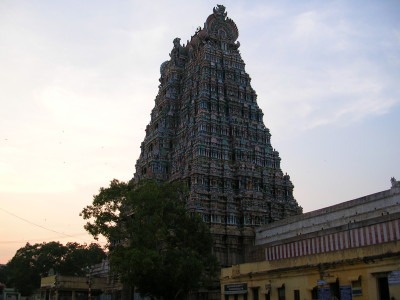One day when I was in high school, I returned home from school to find my Amama* laying on the sofa, still.
I walked over, slowly. This was strange, I thought. She was usually out and about, or would have woken upon hearing me enter. I looked at her chest. Was it moving? Was she breathing?
My fear slowly grew as I watched and couldn’t tell.
Suddenly, her face burst into a smile, and out came a deep laugh. Immediately anger overtook me. Death wasn’t something to joke about. Silently, I walked upstairs.
I can’t recall every being more angry with Amama than that day. After an hour or two, I went downstairs. We both acted like nothing had happened and we never spoke of it again. But there was a message she was trying to tell me — one that I was too young or too stubborn to hear.

I remembered the incident years later when my Grandma passed away unexpectedly while she was on a trip to India. How often she commented, when talking about the future, “Oh, I’ll be dead soon anyway.” After her funeral, I was surprised to learn that she never said that to my mom, only to my brother and I.
Amama never had any fear of death. That joke, her comments, were her unique way of telling us not to fear what was inevitable anyway.
* * *
My experience with Death triggered my distaste for materialism. When I was 12, my Grandpa died. Until then, I had been an avid collector — cherishing my assortment of stamps, newspapers, souvenirs. To an unhappy young boy, the items represented memories that would not be forgotten.
But after Grandpa’s death, I immediately saw these things as meaningless. I began to feel that nostalgia is our body’s way of clinging to the emotions of the past, encoded in items that no longer have the emotional value they once did.
Now, I prefer to remember people in another way, through the heart. When I was young, I read about an African culture that believes there are three phases of being, as opposed to the dominant western belief of two. In our paradigm, there is life, and there is death. But in this culture’s belief, there are three. Physical life, our manifestation in the human body, is the first. The last is death as we see, eternal, final. But in-between is another phase — when are you alive partially, through the people who loved you during your life. It connected with me in a deeper level, spiritually.
To keep someone alive is to remember them, not for what you’ve lost, but for what is still there inside of you. I was my Grandma’s eldest grandson, therefore a special part of her would always be with me. It’s easy to feel pity for yourself, for having lost someone you love, but I wanted to remember and grow. I knew that Amama will still be there, perhaps not in person, but in my heart.
I reflect on her death as I deal with the death of others. Just over a year ago, one of my high school friends died, a death that touched me more than I would have thought. And several of my friends have lost loved ones recently — often to tragedies and often young. Most recently my thoughts and prayers are with a dear friend on the tragic loss of his father.
I understand Amama’s joke today, seven years after her death. She wasn’t laughing at me or my love for her, but at my unfounded fear of death. Death is a part of life, she was telling me. Accept it. Laugh at it. Don’t fear it. And never take for granted what you have at any moment. Like all of life’s most valuable lessons, this is one I only understand now.
*Telugu for “grandma”
Nithin Coca was born in San Diego, California to parents from South India and has lived and worked in the United States, France, Spain, Nepal and Indonesia. He hopes to play a role in protecting the world’s amazing — and threatened — environmental and cultural heritage through education, policy and social activism. He can be reached at freelance@nithincoca.com.













